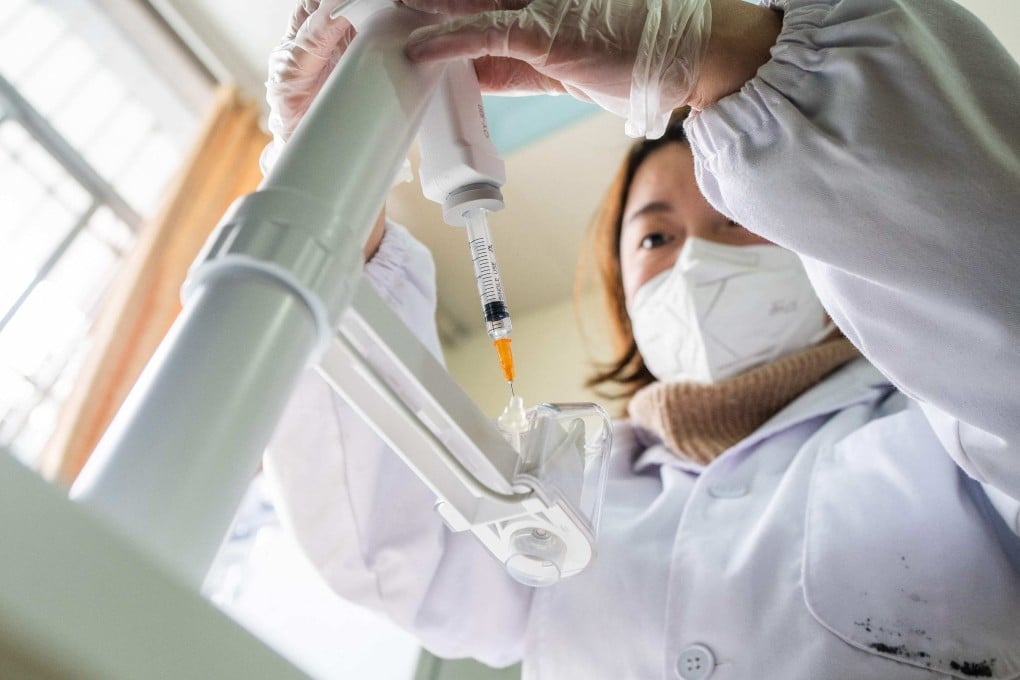China’s super-small inhalable vaccine shows promise in fight against Covid-19, other viral diseases
- Aerosol-based vaccine produces microscopic spheres that resemble PM2.5 particles and can be inhaled deep into lungs
- Non-invasive, single dose delivery is easier to store and transport than traditional injections, and could improve uptake, researchers say

A new powdered, inhalable vaccine could provide better protection against respiratory viral infections than traditional injectable vaccines, according to the Chinese researchers who developed it.
The aerosol-based vaccine produces microscopic spheres that measure just 2.8 microns across, and was found to produce a long, sustained immune response when tested on mice, hamsters and monkeys, with a single-dose, the researchers said in a paper published in the journal Nature on Wednesday.
To produce an aerosol vaccine capable of depositing microcapsules of vaccine into the lungs, the team, led by researchers at the Chinese Academy of Sciences (CAS), took advantage of the same pathway that is used by fine pollutants known as respirable suspended particulates or particles (RSPs).
The airborne particles are caused mostly by the burning of wood and fossil fuels, and can cause serious threats to human health. The tiny size of the inhaled particles has been associated with various health problems, according to the US Environmental Protection Agency (EPA).
The dry, powdered vaccine “can reach the alveoli directly and be effectively deposited,” in the lungs, Ye Tong, co-first author from the CAS Institute of Process Engineering, told the Science Times.